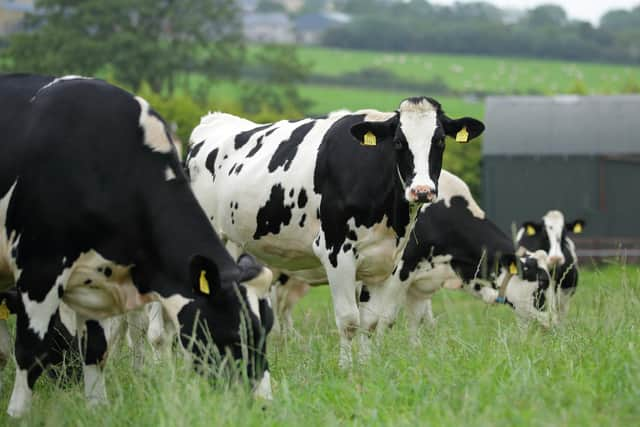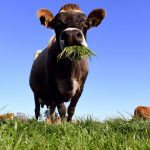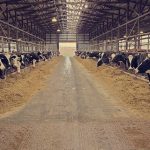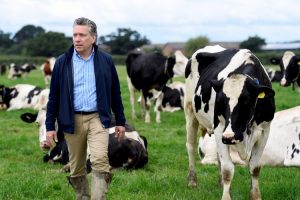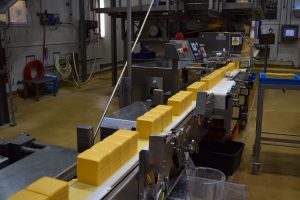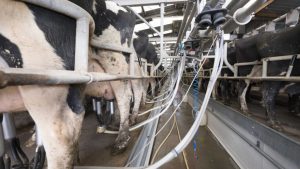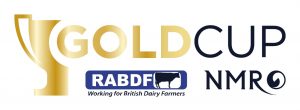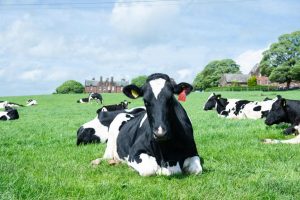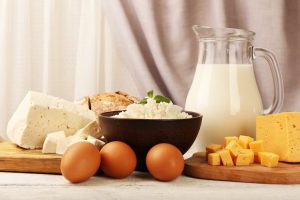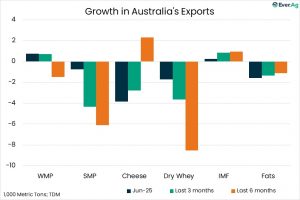
Two current media campaigns, conceived to depict specific animal management practices within the dairy sector, do nothing to tell the real – and very positive – story of what really happens on dairy farms the length and breadth of the UK every day of the week.
The issue in focus is the removal of calves from their dams prior to the cows and heifers then joining their respective milking groups.
Driving these campaigns are two anti-dairy/animal activist groups: Animal Aid and Viva!
Both organisations are committed to switching consumers away from meat and dairy by attacking the livestock industries.

Trying to communicate an issue is one thing; taking matters completely out of context and conveying a totally unbalanced commentary on dairy farming is something else entirely.
Local dairy farmers will be rightly annoyed and indeed angry, should they happen to see one or other of these video productions while either watching television or visiting the cinema.
What these productions fail to communicate is the many hours spent by most members of dairy farming families to ensure that all their cows calve down successfully and that all newborns are given the best possible start in life.

Cows calve at any time of the day or night. And should it be the case that a cow or heifer calves down in those early hours, the farmer is, invariably, there to ensure that everything goes according to plan.
Meanwhile, that same person is in the milking parlour starting a normal day’s work at 5.30am or 6.00am. And this is part of a routine that is followed every day of the year.
Moreover, the Animal Aid and Viva! campaigns ‘conveniently’ overlook the deep commitment that dairy farmers and their family members demonstrate towards all the animals in their herds on a continuous basis.
Every calf born on a dairy farm is highly valued and reared accordingly.
It is not in dairy farmers’ nature to be cruel to their animals. They are more than happy to let the outworking of their animal management systems and the welfare standards they consistently achieve speak for themselves, and indeed for them to be independently audited as part of accredited assurance programmes.
A successful calving is the most important event that takes place on a dairy farm. And it is vitally important that the mother and the new arrival get through the process safely and with the minimum amount of stress created for both animals.
And none of this comes about by accident. Cows are carefully managed in the weeks up to calving to ensure they give birth in the best possible condition. And the same principle holds with the arrival of the new calf.
Ensuring that the newborn gets the best possible start is a fundamental driver on all dairy farms, and is widely recognised as being the case.
New technologies are also helping to change the breeding policies followed on dairy farms. The use of sexed semen is allowing milk producers to breed the herd replacements they need from the most genetically superior cows and heifers in their herds.
As a result of this, farmers can make much greater use of high-quality beef sires thereby ensuring that the value of these non-dairy calves is so much greater than would have previously been the case when significant numbers of dairy bull calves would have been produced.
This all adds up to a scenario whereby the value of all animals found in our dairy herds is highly significant, in every sense.
Meanwhile, ongoing research is confirming the tremendous nutritional value of dairy products for us all. And this is particularly the case where children and older people are concerned: a fact that is fully recognised and endorsed by organisations like the United Nations’ Food and Agriculture Organisation (FAO).
So important is the role of milk within a balanced human diet that the FAO has dedicated two international days of the year to this unique source of nutrition.
One is targeted at consumers across the board while the other focuses on the needs of children. No other food source is profiled in this way by the world’s pre-eminent organisation, dedicated to the international prevention of hunger and an improvement in food security.
World Milk Day is celebrated at the beginning of June each year with World School Milk Day following on in September.
The unique combination of high-quality protein, minerals and vitamins that are found in milk ensures that nutrient-rich dairy can make an important contribution to nutrient intakes and diet quality at all ages and stages of life.
Significantly, the Dairy Council for Northern Ireland is working to tell the story of the tremendous nutritional and health benefits associated with milk products.
At the heart of this commitment is our relationship with world leading scientists, involved in research that is further helping to identify the ways in which dairy products can help to deliver healthy and sustainable diets for everyone.
We also communicate the results of this work to nutrition and health professionals, teachers and consumers.
Children’s nutrition has long been a priority for the Dairy Council. And it is worthy of note that our educational programmes are in constant demand from teaching professionals throughout the academic year. What’s more this momentum continues to build.
It will not have escaped anyone’s notice that Spring 2025 has arrived with a tremendous flourish. Weeks of almost constant sunshine have allowed dairy farmers to get their cows and all the other animals within their herds out into the fields.
More time spent outdoors ensures increased access to grazed grass as the most natural form of nutrition for all ruminant animals. Northern Ireland has long been synonymous with not only the growing of high-quality grass, but also our farmers’ renowned ability in being able to manage this unique resource in the most efficient way possible.
It is an awful pity that organisations such as Animal Aid and Viva! never seem to focus on these fundamental and intrinsically positive aspects to local dairy farming practices.
For them, it’s a case of defaulting to scare tactics. Dairy farmers, on the other hand, have a much different way of arguing their case.
And it’s built around a very simple principle: being honest matters.
Ian Stevenson, Chief Executive, Dairy Council for Northern Ireland
You can now read the most important #news on #eDairyNews #Whatsapp channels!!!
🇺🇸 eDairy News INGLÊS: https://whatsapp.com/channel/0029VaKsjzGDTkJyIN6hcP1K
